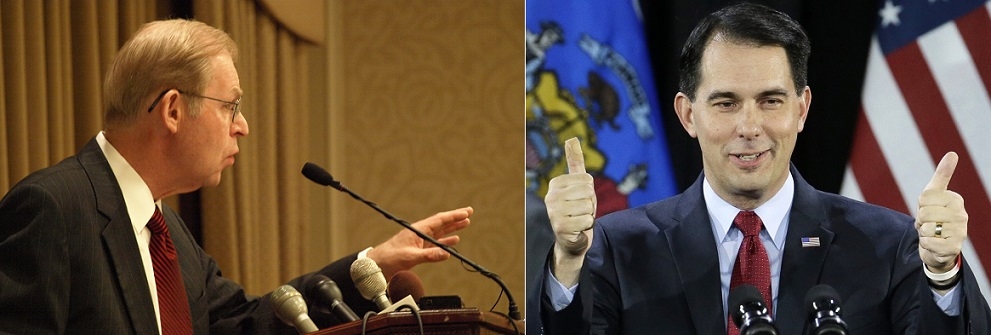Local News
State’s law and constitution clash in Gov. Walker’s favor

Walker’s appointee for Supreme Court
justice will go unchallenged until 2020
Whoever gets appointed to fill the next Wisconsin Supreme Court vacancy will get to serve four years before having to face the voters.
That’s not in the state constitution, but it is a Wisconsin law, which says only one Supreme Court seat at a time can be up for election
With David Prosser announcing his retirement in July from the Wisconsin Supreme Court, Wisconsin Gov. Scott Walker will have to name a replacement.
And, because the state law overrides the state constitution, that means Walker’s pick gets the seat until 2020 with voters having no say in the matter, because there are elections on the high court elections already planned for the next three years.
Reid Magney from the Government Accountability Board says the process is set out in the state constitution.
“The constitution says that when there’s a vacancy in the office of Supreme Court justice, the governor makes an appointment and that person shall continue until a successor is elected and qualified,” Magney said.
“Then you have to go and look at state law, which says that when there’s a vacancy … the election to fill that is held at the first succeeding spring election when no other justice is to be elected.”
Magney mentioned the rule goes back a few decades, “probably some time between 1971 and, my guess, is the 1990s.”
Walker is likely to appoint a new justice by the end of May. One that aligns with Walker’s views, too, of course.
“What that would assume to me, is that he would like the governor to appoint a successor who, of course, would have Republican leanings,” University of Wisconsin-La Crosse longtime political scientist Joe Heim said.
According to one statewide report, the potential candidates for Prosser’s seat include Judge Randy Koschnick, who ran against Shirley Abrahamson in the 2009 Supreme Court race.

